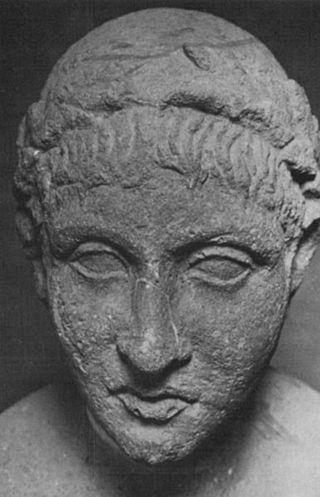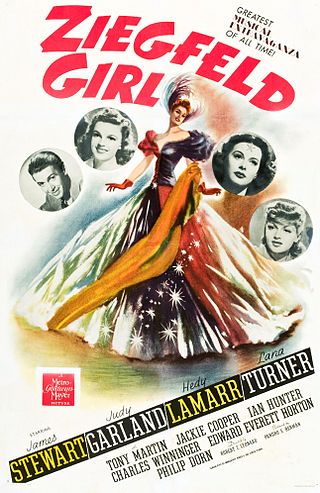
Carthage was the capital city of ancient Carthage, on the eastern side of the Lake of Tunis in what is now Tunisia. Carthage was one of the most important trading hubs of the Ancient Mediterranean and one of the most affluent cities of the classical world.

The Third Punic War was the third and last of the Punic Wars fought between Carthage and Rome. The war was fought entirely within Carthaginian territory, in what is now northern Tunisia. When the Second Punic War ended in 201 BC one of the terms of the peace treaty prohibited Carthage from waging war without Rome's permission. Rome's ally, King Masinissa of Numidia, exploited this to repeatedly raid and seize Carthaginian territory with impunity. In 149 BC Carthage sent an army, under Hasdrubal, against Masinissa, the treaty notwithstanding. The campaign ended in disaster as the Battle of Oroscopa ended with a Carthaginian defeat and the surrender of the Carthaginian army. Anti-Carthaginian factions in Rome used the illicit military action as a pretext to prepare a punitive expedition.

Dido, also known as Elissa, was the legendary founder and first queen of the Phoenician city-state of Carthage, in 814 BC. In most accounts, she was the queen of the Phoenician city-state of Tyre who fled tyranny to found her own city in northwest Africa. Known only through ancient Greek and Roman sources, all of which were written well after Carthage's founding, her historicity remains uncertain. The oldest references to Dido are attributed to Timaeus, who was active around 300 BC, or about five centuries after the date given for the foundation of Carthage.

HM Prison Holloway was a closed category prison for adult women and young offenders in Holloway, London, England, operated by His Majesty's Prison Service. It was the largest women's prison in western Europe, until its closure in 2016.
Million Dead were an English post-hardcore band from London, active between 2000 and 2005.
"Salad days" is a Shakespearean idiom referring to a period of carefree innocence, idealism, and pleasure associated with youth. The modern use describes a heyday, when a person is/was at the peak of their abilities, while not necessarily a youth.
"Montana" is a song composed by Frank Zappa for his 1973 LP Over-Nite Sensation. The last track on the album is one of Zappa's most famous and renowned compositions. It features backing vocals by Tina Turner and the Ikettes throughout the entire track, notably on the middle and ending sections.

The Punic people, usually known as the Carthaginians, were a Semitic people who migrated from Phoenicia to the Western Mediterranean during the Early Iron Age. In modern scholarship, the term Punic, the Latin equivalent of the Greek-derived term Phoenician, is exclusively used to refer to Phoenicians in the western Mediterranean, following the line of the Greek East and Latin West. The largest Punic settlement was Ancient Carthage, but there were 300 other settlements along the North African coast from Leptis Magna in modern Libya to Mogador in southern Morocco, as well as western Sicily, southern Sardinia, the southern and eastern coasts of the Iberian Peninsula, Malta, and Ibiza. Their language, Punic, was a dialect of Phoenician, one of the Northwest Semitic languages originating in the Levant.

Publius Cornelius Scipio Nasica Corculum was a politician of the Roman Republic. Born into the illustrious family of the Cornelii Scipiones, he was one of the most important Roman statesmen of the second century BC, being consul two times in 162 and 155 BC, censor in 159 BC, pontifex maximus in 150 BC, and finally princeps senatus in 147 BC.
"Exactly Like You" is a popular song with music written by Jimmy McHugh and lyrics by Dorothy Fields and published in 1930. The song was introduced by Harry Richman and Gertrude Lawrence in the 1930 Broadway show Lew Leslie's International Revue which also featured McHugh and Fields's "On the Sunny Side of the Street".

Ziegfeld Girl is a 1941 American musical film directed by Robert Z. Leonard and starring James Stewart, Judy Garland, Hedy Lamarr, Lana Turner, Tony Martin, Jackie Cooper, Eve Arden, and Philip Dorn. The film, which features musical numbers by Busby Berkeley, was produced by Metro-Goldwyn-Mayer.
Jeanette Bazzell Turner is an American writer, singer-songwriter, recording artist, partner with Ike Turner Revue, C-YA Record Co., Eki Publishing Co. and known for her collaborations with her then-husband musician Ike Turner. Bazzell began her career in a St. Louis rock 'n' roll band, then progressed to a musical review. She was later the lead singer for the San Diego-based blues and rock band Backwater Blues.

Ancient Carthage was an ancient Semitic civilization centered in North Africa. Initially a settlement in present-day Tunisia, it later became a city-state and then an empire. Founded by the Phoenicians in the ninth century BC, Carthage reached its height in the fourth century BC as one of the largest metropolises in the world. It was the centre of the Carthaginian Empire, a major power led by the Punic people who dominated the ancient western and central Mediterranean Sea. Following the Punic Wars, Carthage was destroyed by the Romans in 146 BC, who later rebuilt the city lavishly.
"Romeo Is Bleeding" is a song written and performed by Tom Waits, and released on his 1978 album, Blue Valentine. The lyrics make frequent use of Spanish, including phrases such as "Hey Pachuco!", "Dáme esa pistola, hombre!", "Hijo de la chingada madre!", and "Vamos a dormir, hombre". Waits also makes a reference to gangster movie-star James Cagney, also mentioned in "Invitation to the Blues" from the album Small Change.
"Checkin' Up on My Baby" is a song recorded by Sonny Boy Williamson II in 1960 that has become a classic of the blues. The song was not released as a single, but was included on Williamson's The Real Folk Blues album released after his death in 1965. The song has been recorded by numerous blues and other artists, making it one of Williamson's most recorded songs.
Lawrence L. Morey was an American lyricist and screenwriter. He co-wrote some of the most successful songs in Disney films of the 1930s and 1940s, including "Heigh-Ho", "Some Day My Prince Will Come", and "Whistle While You Work", and was also responsible for adapting Felix Salten's book Bambi, A Life in the Woods into the 1942 Disney film Bambi.

"You Are What You Is" is a single which Frank Zappa released from his 1981 album of the same title. The song is known for going out of its way to use improper English, basically mocking the rest of its context. It was the B-side for 1982 single "Valley Girl". This song was also remixed for the 1984 album Thing-Fish.
T. J. Fowler was an American jazz and jump blues musician, chiefly active in the Detroit musical scene.
"Going Down The Road Feeling Bad" is a traditional American folk song, "a white blues of universal appeal and uncertain origin".









